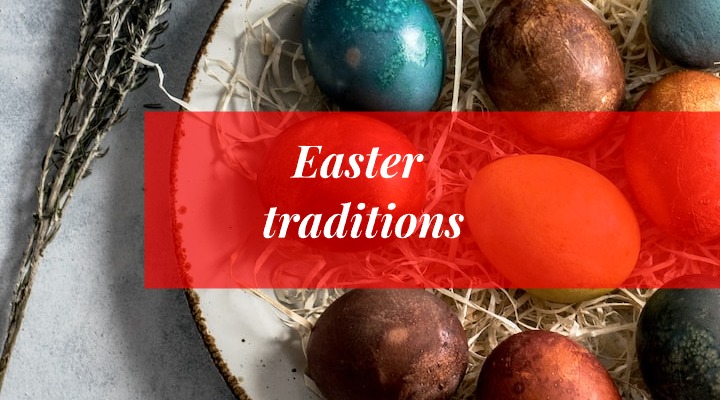Easter traditions around the world: The importance of accurate translation in preserving cultural identity

Easter traditions around the world: The importance of accurate translation in preserving cultural identity
Easter is the most important holiday in Christian culture. Interestingly, however, it’s associated with many fascinating traditions and customs characteristic of a certain country or place. Some of them are purely religious in nature, while others are surprising in their unconventional form.
In this article, we’ll look at the most interesting Easter traditions worldwide and the importance of accurate translations to preserve cultural identity. Ready? Then join us on a journey around the world.
Easter traditions in different cultures
So many countries, so many customs, and religious Easter rituals are no different. We’ve selected some of the most interesting examples of how various countries celebrate Easter. The ingenuity of nations is quite high, but it’s worth considering how they came to have such a custom. And we’ll take a closer look at that, too.
SEMANA SANTA IN SPAIN
Semana Santa, or literally Holy Week, is a celebration that lasts – as the name suggests – a whole week. During this time, the Spanish participate in numerous processions and events that are evidence of their devotion and cultural richness.
Semana Santa attracts many tourists yearly, as some of the processions are true street performances with characteristic costumes, props, or spectacular events (such as the self-flagellation or Dance of Death in Catalonia). The processions also retain historical references, with the most prominent example being penitential costumes with pointed headgear alluding to the Spanish Inquisition.
OSTEREIERBAUM IN GERMANY
In some countries, it’s a popular tradition to paint eggs for Easter, but in Germany, the custom was evolved, resulting in the Ostereierbaum – the Easter tree. The history of this custom goes back to distant times when the ancestors of modern Germans offered gifts to the goddess of spring.
Leading the way in this festive “fun” is Volter Kraft, who has decorated his garden apple tree unusually richly since 1965. Record? 700 Easter eggs were placed on the tree.
PAASKEKRIMMEN IN NORWAY
Norway is the crime fiction capital of the world. The love of this kind of literature and films is reflected in Easter traditions under the name Paaskekrimmen – Easter thrillers.
It all started in February 1923, when two young Norwegian authors wrote a gripping crime novel and ran an advertisement in the newspaper on the Sunday before Easter. Since then, Norwegians have been eager to read or watch crime stories in the week before Easter.
PÂQUES IN FRANCE
Easter customs in France resemble those in other countries, but an interesting exception is the creation of a giant omelette in Haux. Residents are involved in its cooking, breaking up to 15,000 eggs, and preparing a meal for several thousand people.
The origins of this tradition can be traced back to the time of Napoleon when his army stopped in this small town, where they were treated to omelettes. Napoleon liked the dish so much that he ordered the locals to gather eggs and make a giant omelette for his army the very next day.
ORTHODOX EASTER IN GREECE
Greece – the cradle of culture – has different customs, but for the most part, it prevails a solemn atmosphere, culminating on Holy Saturday. On that day is an evening mass, during which the lights are switched off and then come back on full blast. This tradition originates from the belief that Christ, after his resurrection, has overcome darkness and death.
In many temples, the priest hands over the Holy Fire to those gathered, and fireworks light up the sky. This spectacular nightly spectacle is also a closing of the fasting period.
The role of translation in preserving cultural identity
Traditions – not just Easter ones – are strongly affected by the history and culture of a particular country. The vocabulary is one thing, but some nuances are often only understood by those familiar with the region. Moreover, the unskillful translation of phrases can have unpleasant consequences and misrepresent cultural traditions.
Any examples? Let’s see below:
- The English phrase “bless you”, which is commonly used to say when someone sneezes, can be misinterpreted as a prayer in some countries.
- Inadequate translation of Easter traditions, such as “påskekrimmen”, which can be misunderstood as “Easter crime”.
- “Lambáda” – in Greek, “Lambáda” means Easter candles, which are traditionally used as a symbol of returning to life. The translation “Lamb” can lead to confusion, as it’s a term for a young sheep.
Of course, these are only a few simple examples, as it’s a challenge, for example, to translate the names of dishes or specific rituals. Therefore, it’s necessary to go to the source to ensure a faithful and adequate interpretation of texts relating to customs. This, however, can be both labour- and time-consuming. Another solution is to enlist the help of an experienced translation agency that has native speakers on board.
So, if you want to make sure that your translations reflect the cultural spirit of a country, the safest option is to use a translation agency.
The importance of cultural sensitivity in translation
Descriptions of rituals, traditions, or customs often touch on the most spiritual experiences, so it’s essential to retain a healthy dose of respect for other people’s beliefs. This requires sensitivity to cultural differences and nuances while maintaining accuracy in translations.
A lack of proper sensitivity can lead to unpleasant consequences, often legal (e.g., offending religious feelings) and discouraging the audience. A great example is the translation of quotations from the Bible or other sacred texts, which are often available in different translations in different countries.
An experienced translator will be able to verify the accuracy of the translation by paying attention to its style and form and tailoring the translation to the target audience. Such skills, however, require considerable experience, so it’s best to work with a professional agency that has already completed hundreds of assignments.
Conclusion
Translating texts is always challenging, but it’s even greatest concerning traditions, ceremonies, and customs. Events such as Easter are often characterised by historical and religious references that need to be known in order to convey their spirit in the texts properly. What’s more, not learning how to navigate this topic can inadvertently offend your audience, misrepresenting meanings or ultimately simplifying the message associated with a particular tradition.
To make sure your translation texts are in good hands, work with professionals. Take advantage of our help. Aploq Translation Agency is full of experienced professionals who know the language they are working with very well. We’ll take excellent care of your text – that’s our promise.

